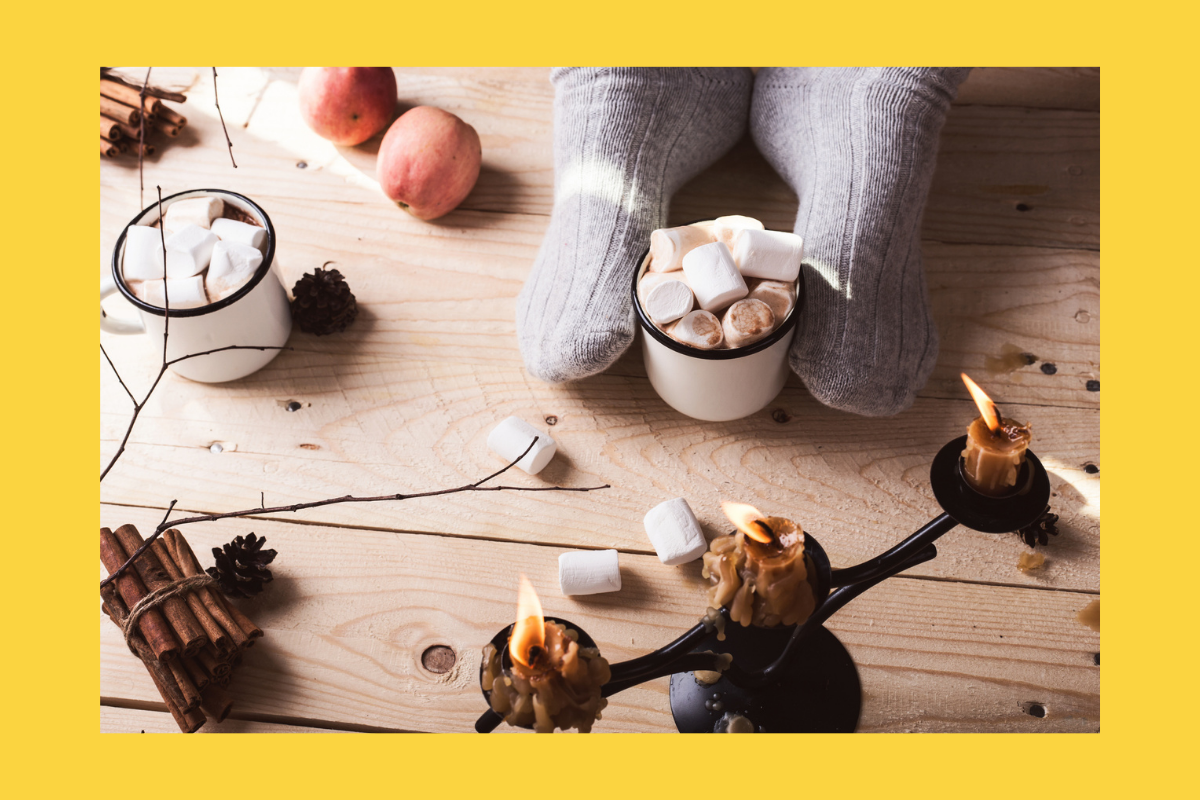Maybe you have experienced something like this: Someone asks you, “How was your Thanksgiving?” Your heart rate skips slightly, but you fake a smile and say, “It was great!” And maybe it was great — but also stressful. And subconsciously you know that Thanksgiving means the king of stressful holidays is just around the corner.
I’ve personally heard all kinds of anecdotes from this year’s Thanksgiving. Everyone’s dressed up with a smile, but the real stories come out in side conversations: Someone got into an argument and walked out. Someone got immediately drunk. I’m guessing these things are far more common than we readily admit. We’re bombarded with a steady stream of relentless advertising this time of year that makes it appear everyone should be euphorically communing with friends and family as we sip spiced beverages in Santa hats.
The reality is that for many, the period between Thanksgiving and the winter holidays is incredibly stressful. And while I’m sure we all have our coping mechanisms, I've picked up a few recently that I'd like to share.
Can You Do One Less Thing?
You may find your to-do list growing, which could mean any number of things: Perhaps multiple people you know are hosting holiday parties, and some fall on the same day. Or the tasks of shopping, gift-wrapping, meal-preparing, and card-sending overwhelm you. You can opt to take something off your own plate if it all seems too much. Give yourself the option to take obligations off your list. Attend one party instead of two parties. (“Sorry, I already told so-and-so I am attending theirs,” instead of, “I have to go to so-and-so’s party first, but I will come to yours afterward.”)
Maybe you can delegate some tasks if you are hosting a party or tasked with planning and preparing a meal. If you feel stressed about the list of things to do in the coming days, stop and question whether you have to do each and every one. Don’t simply assume you are obligated to do everything. And for the things you have to do, there’s no shame in rethinking how you do it so that it’s easier for you.
Take Deep Breaths
This may sound overly simple, but deep breathing is often the first line of defense for people when they feel a panic attack coming on, and there’s a physiological reason for it.
Deep, abdominal breathing helps to stimulate the vagus nerve, a key component of what’s known as the parasympathetic nervous system. The parasympathetic nervous system is the counterpoint for what is commonly known as the “fight or flight” response, activating the “rest and digest” nervous system response in the body. Psychology Today describes this type of breathing like this:
“Diaphragmatic breathing (also referred to as "slow abdominal breathing") is something you can do anytime and anywhere to instantly stimulate the vagus nerve and lower stress responses associated with ‘fight-or-flight’ mechanisms.”
When I do this, I personally like to imagine a large tube going from my nose into my belly, with each inhale filling up my abdomen with fresh air, and each exhale pressing it all out like an accordion or inflatable rubber ball. You can do it anywhere, like Psychology Today says. You can find a quiet moment alone, and also you can do this at the dinner table, if needed.
Pay Extra Attention to Self Care
The term “self care” has become a bit trendy and even somewhat polarizing lately, and it means different things to different people. But all I mean here is, pay extra attention to when you can take a walk, have a quiet cup of tea, or take extra time with personal grooming. Maybe it means you don’t mindlessly jam the brush through your hair, or you seize the opportunity to take some time outside and get some fresh air instead of scrolling through social media or sending a text message.
If you have access to it, maybe find some nature, whether you live near a safe trail or park. If not, try to pay attention to the nature that’s available to you instead of running through lists of things to do in your head. I happen to live in a densely populated area, so sometimes “nature” for me just means looking at the trees lining the streets and listening to the local birds do their thing.
Don't Neglect Your Exercise Routine
Whatever you do for exercise — walking, running, yoga, going to the gym, playing sports — it's good for your mood. Even if you are so busy, try get your body moving, in whatever form it may take. Not only can exercise boost endorphins, it also acts like moving meditation, focusing your mind on your immediate activity.
Personally, I enjoy yoga, which combines two elements of stress reduction -- deep breathing and movement. To do yoga, you don’t have to be able to do a handstand on one hand or wrap your leg over your back. You don’t even have to be able-bodied. I found some great YouTube videos with instructor Adriene Mishler specifically designed to relieve feelings of stress and anxiety that are easy to do. She also has videos tailored for those who use wheelchairs for mobility and also gentle chair yoga for seniors.
If that’s not your cup of tea, maybe just make a point to keep doing what’s best for you. The bottom line and most important thing to remember is there's no shame in treating yourself with the kind of care and consideration with which you would treat someone else. As one of my yoga instructors says, you can't fill up someone else's cup if yours is empty.
